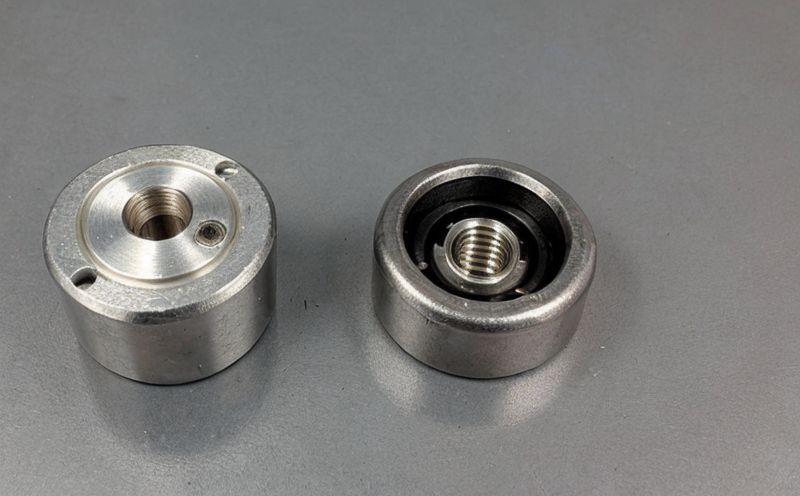Load Cell Inspection and Verification
In industries where precision measurement is critical—such as manufacturing, automotive, aerospace, and pharmaceuticals—the reliability of load cells cannot be overstated. Load cells are sensors that measure force or weight by converting it into an electrical signal. Given their pivotal role in ensuring accurate measurements, regular inspection and verification are essential to maintain the integrity of these systems.
Load cell calibration is a process that ensures the accuracy of the device’s output against known standards. This involves comparing the load cell's readings with a reference standard under controlled conditions. The primary goal is to identify any deviations from expected performance, which could indicate wear or other issues affecting measurement precision.
The inspection and verification processes for load cells are governed by several international standards. Notably, ISO 7507-1:2018 provides detailed guidelines on the calibration of static force measuring instruments, including load cells. These standards ensure that the process is consistent across different regions and applications.
Load cell inspection typically involves a series of steps designed to evaluate various aspects of performance:
- Visual Inspection: Checking for physical damage or signs of wear such as cracks, corrosion, or deformation.
- Calibration Testing: Using known loads and comparing the load cell’s output to these standards. This helps determine if the device is within acceptable tolerances.
- In-Room Testing: Performing tests in controlled conditions to ensure that environmental factors do not affect the measurements.
The verification process aims to confirm that load cells meet specific performance criteria. These criteria are outlined in relevant standards and include:
- Accuracy within specified tolerances
- Linearity of output signal
- Repeatability of measurements
- Durability under various loading conditions
In some cases, additional tests may be necessary depending on the specific application. For example, in dynamic applications where rapid changes in load are common, dynamic testing is essential to ensure the load cell can accurately measure these fluctuations.
Our laboratory adheres strictly to these standards and uses state-of-the-art equipment to conduct inspections and verifications. Our team of experts ensures that each test is performed meticulously, providing clients with reliable results they can trust. This level of precision is crucial for maintaining compliance with regulatory requirements and ensuring the safety and quality of products.
Our load cell inspection services are not limited to a single application but cover a wide range of industries where accuracy in force measurement is paramount. By partnering with us, organizations can ensure that their critical systems remain reliable and compliant, thereby reducing downtime and operational costs.
Industry Applications
| Industry Sector | Specific Application |
|---|---|
| Manufacturing | Quality control in production lines, ensuring consistent material handling. |
| Aerospace | Testing components for stress and strain under various loading conditions. |
| Packaging | Verification of packaging machines to ensure they meet legal weight standards. |
| Agriculture | Calibration of machinery used for weighing crops and livestock. |
The list above highlights just a few examples of how load cell inspection and verification are critical across multiple sectors. The precision required in these industries underscores the importance of regular inspections to maintain accuracy and reliability.
Environmental and Sustainability Contributions
The environmental impact of imprecise measurements can be significant, particularly in large-scale industrial processes where small discrepancies can lead to substantial waste. By ensuring that load cells are regularly inspected and verified, organizations contribute to greater efficiency and sustainability.
Inaccurate force measurement can result in overproduction or underutilization of resources, leading to increased energy consumption and raw material usage. Regular inspections help prevent these inefficiencies by maintaining the accuracy of critical systems. This not only reduces waste but also contributes positively to environmental goals.
Furthermore, compliance with regulatory standards ensures that industries operate within legally defined parameters, which often have a direct positive impact on sustainability efforts. By adhering to these standards and conducting thorough inspections, organizations can play an active role in promoting sustainable practices across their supply chains.
Competitive Advantage and Market Impact
In today’s competitive market, the reliability of measurement devices is a key differentiator. By offering load cell inspection and verification services, we help clients maintain top-tier performance in their critical processes.
The accuracy and consistency provided by our inspections give organizations a clear edge over competitors who may not prioritize such maintenance. This is particularly relevant in industries where product quality directly impacts customer satisfaction and market reputation.
Additionally, compliance with international standards enhances the trustworthiness of products and services, which can significantly impact brand image and customer loyalty. In sectors like aerospace or pharmaceuticals, where regulatory compliance is paramount, our services ensure that clients meet these stringent requirements without unnecessary delays.
The precision and reliability provided by regular inspections also contribute to reduced downtime and increased productivity. This translates into cost savings for organizations, which can be reinvested in other areas of the business or used to improve product quality further.





